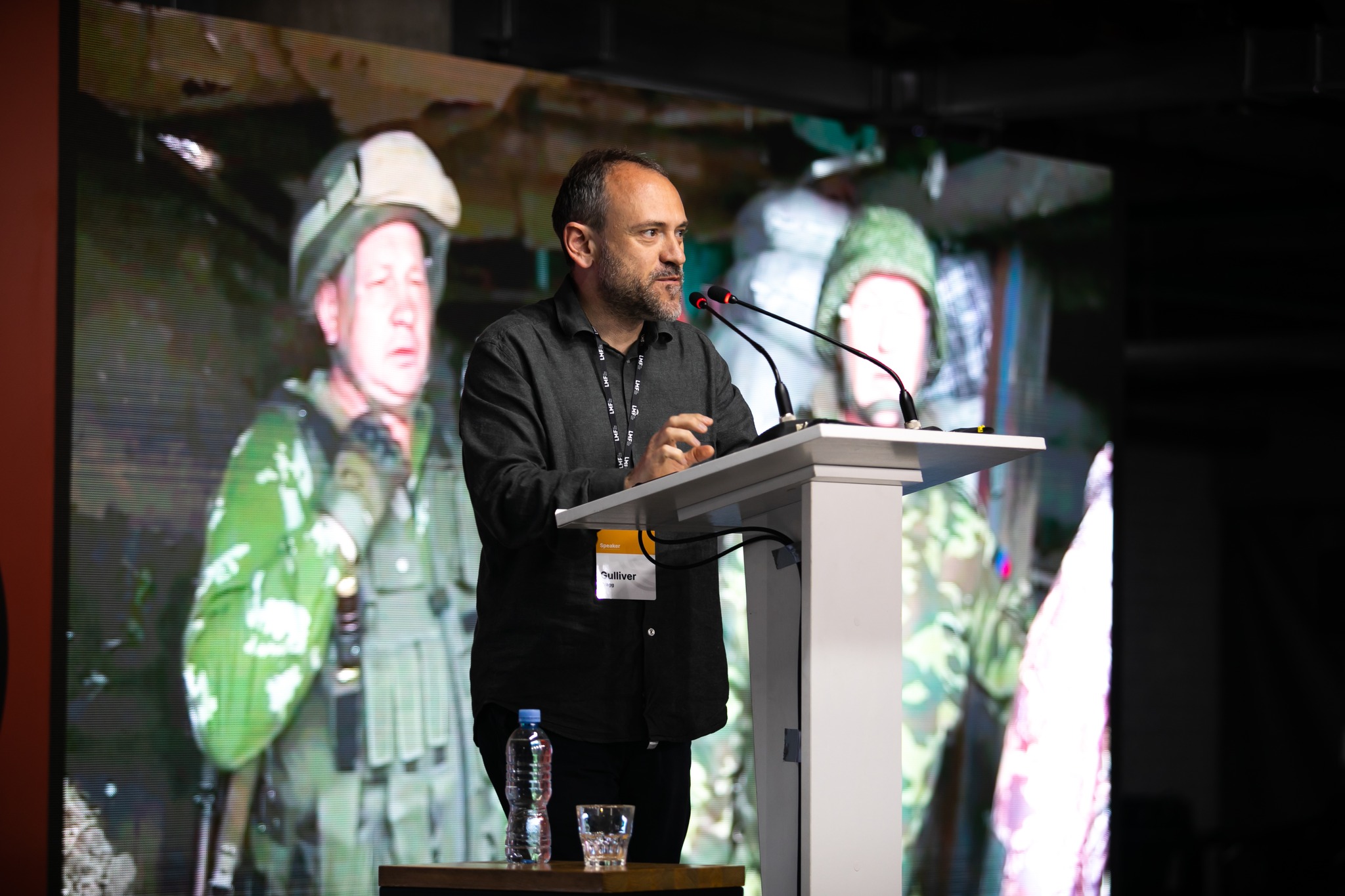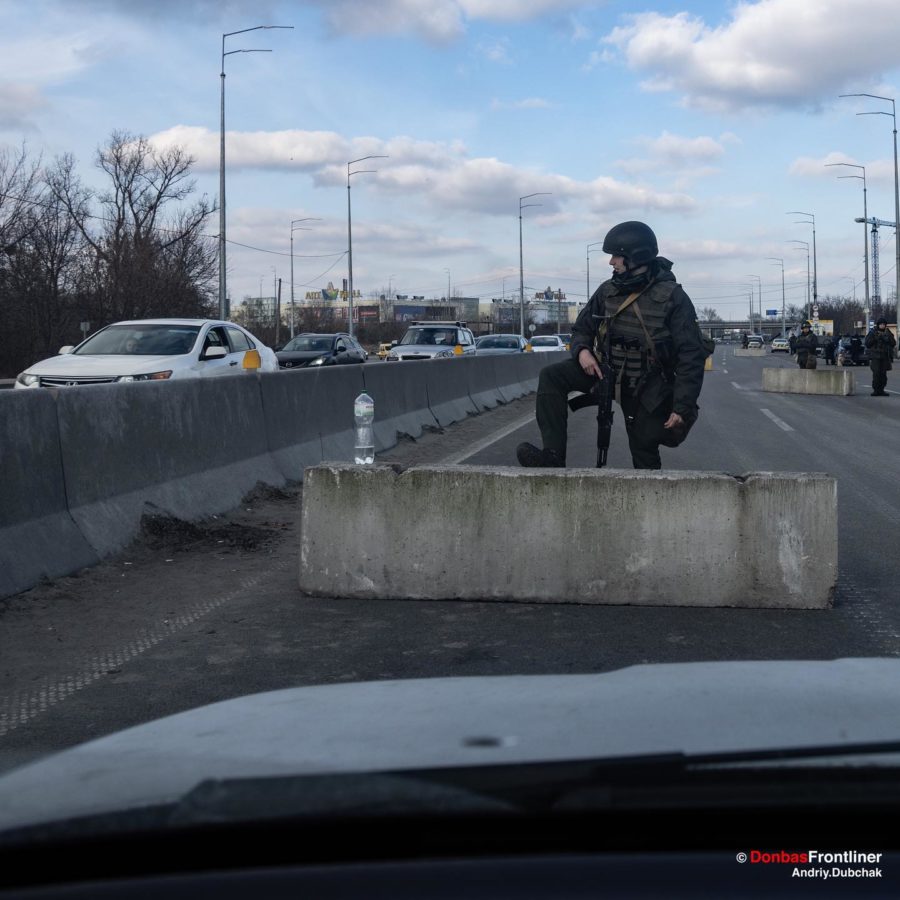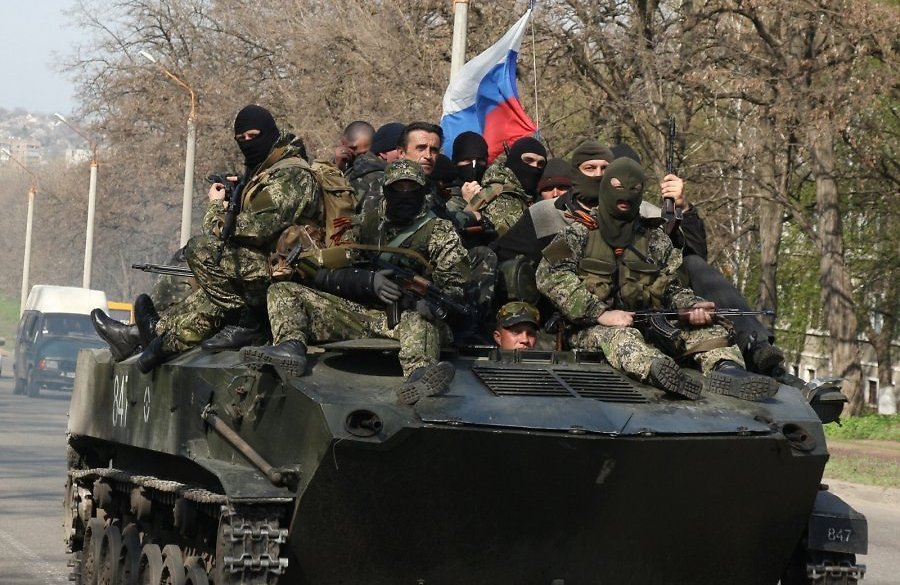On 24 March, Ukrainians launched an online-protest against recognition of Russia’s Donbas puppet republics on Facebook. Under the coronavirus quarantine restrictions, any “offline” form of protest is currently practically impossible in Ukraine. However, the 25 March is the date when an online meeting of the Minsk Trilateral Contact Group (TCG) is going to take place. Initially, the meeting should have been taken place in person in Minsk. The plan was to sign an agreement on establishing a Consultation Council that would engage representatives of the so-called Donetsk and Luhansk people’s republics (“DNR” and “LNR”) – state-like entities designed and fully controlled by Russia in the easternmost Ukrainian region of the Donbas.
On 11 March, an extraordinary meeting of the Trilateral Contact Group on the peaceful settling of the Donbas situation took place in Minsk. Although President Zelenskyy’s Office informed that the get-together between Andriy Yermak, the head of Volodymyr Zelenskyy’s President’s Office, and Dmitry Kozak, deputy head of Putin’s Presidential Administration, resulted in an agreement on additional troop withdrawals, exchange of prisoners, and checkpoint openings, and an enigmatic Consultation Council, the truth may be more sinister, according to the Ukrainian outlet DT.ua.
The media published photos of agreements which were likely signed during the Trilateral Contact Group in Minsk. The text of the agreements goes in line with the Russian scenarios for Ukraine, and, correspondingly, pro-Russian forces within Ukraine. The most contentious part of the agreements is the Consultation Council. The latter is to be part of the political subgroup of the Trilateral Contact Group and was said to have been created after consultations with representatives of the OSCE, France, and Germany in connection to agreements reached during the last Normandy Summit in December 2019. The document confirms that a Consultation Council has indeed been created, and it treats the parts of Donbas occupied by Russia – the Luhansk and Donetsk “people’s republics” – as having political subjectivity and grants Russia the status of a “guarantor-observer” equal to Germany, France, and OSCE.
Thus, this council would drive Ukraine to have direct negotiations with Russia’s puppet entities – reinforcing the Kremlin’s narrative of the war in Donbas being a Ukrainian “internal matter,” i.e. it is a conflict with genuine separatist political actors rather than Russian creations.
Read also: Shady agreements legitimizing Russia’s puppet “republics” likely signed in Minsk
Following the news, members and activists of the Voice political Party came together to the Office of the President to rally against the establishment of the new proposed institution, seeing the institutionalization of the Consultation Council as a betrayal of Ukraine’s national interests.
On 13 March, three members of the Servant of the People presidential faction in the Ukrainian parliament called on Volodymyr Zelenskyy to scrap the plans to create the Council because Russian occupation authorities control the temporarily occupied territories according to the Ukrainian laws. Thus, “the Ukrainian legislation makes it impossible to recognize in any form any government of the so-called ‘LNR’, ‘DNR’, ‘ORDLO’, etc.” That is why the new institution is unacceptable and the TCG should return to previous accords.
On 14 March, at least 10,000 veterans and activists marched through central Kyiv in a 1.5 km long column demanding to stop the course towards capitulation. On 17 March, a protest demanding the parliament to quarantine together with the rest of the country took place.
There is a fear among Ukrainian civil activists that those in power would try to take advantage of the situation over the coronavirus pandemic and adopt laws assigning legitimacy to the “DNR” and “LNR”. With mass gatherings prohibited and the public places closed as quarantine measures to stop spreading the COVID-19 infection. The activists demanded that the parliament suspend its activities until the end of the epidemic, claiming that democracy requires decisions of the Verkhovna Rada to be openly discussed or challenged by civil society, including the use of mass protests when needed.
Read also: Quarantine parliament: Ukrainians rally against using coronavirus situation to rush treasonous laws
Still, as the online meeting of the Trilateral Contact Group is scheduled for 25 March, the activists organize an online protest against the legitimization of the so-called republics. In particular, Facebook users share pictures of them holding placards that read “Zelenskyy, you promised not to hold negotiations with terrorists,” “No to the recognition of the ‘DNR’ and ‘LNR’,” “Russia is an aggressor, not a negotiator,” etc, tagging the page of the event, friends, and the President’s Office.
The demands of the protesting Ukrainians include the following demands:
- not to negotiate with terrorists;
- not to recognize the “DNR” and “LNR” a side of the negotiation process;
- not to create common formal or informal bodies, councils, groups or other negotiation platforms with the representatives of the so-called republics;
- not to withdraw the responsibility for the aggression against Ukraine from Russia.
- before the 25 March, to consider the petition on the withdrawal of the signatures of Ukraine’s ex-president Leonid Kuchma, and Andriy Yermak, the head of Volodymyr Zelenskyy’s President’s Office, from the minutes of the TCG meeting of 11 March. The petition has collected more than 25,000 votes necessary for consideration.
Also, on 16 March, another petition was registered on the presidential website titled An Open Appeal to the President of Ukraine Regarding the Refusal of the Ukrainian Authorities to Protect the Sovereignty and Territorial Integrity of Ukraine in the Face of Russian Aggression. More than 5,000 people have signed the petition so far.
The appeal outlines the possible consequences of signing the agreement in question. In particular, the petition states that the new accords would recognize Russian aggression and occupation as Ukraine’s internal conflict. In turn, this would lead to the curtailment of international sanctions imposed on Russia. The recognition would also shift legal and material responsibility for all the losses caused by the aggression from Russia to Ukraine, exonerating military criminals from responsibility for their crimes and ruining Ukraine’s position in international courts, meaning Ukraine’s factual withdrawal from the effective strategy on the de-occupation of Crimea and curtailment of its European and Euro-Atlantic integration.
The petition calls on President Zelenskyy to stop the actions against the vital interests of the Ukrainian people and to bring those who stand behind these violations to justice.















